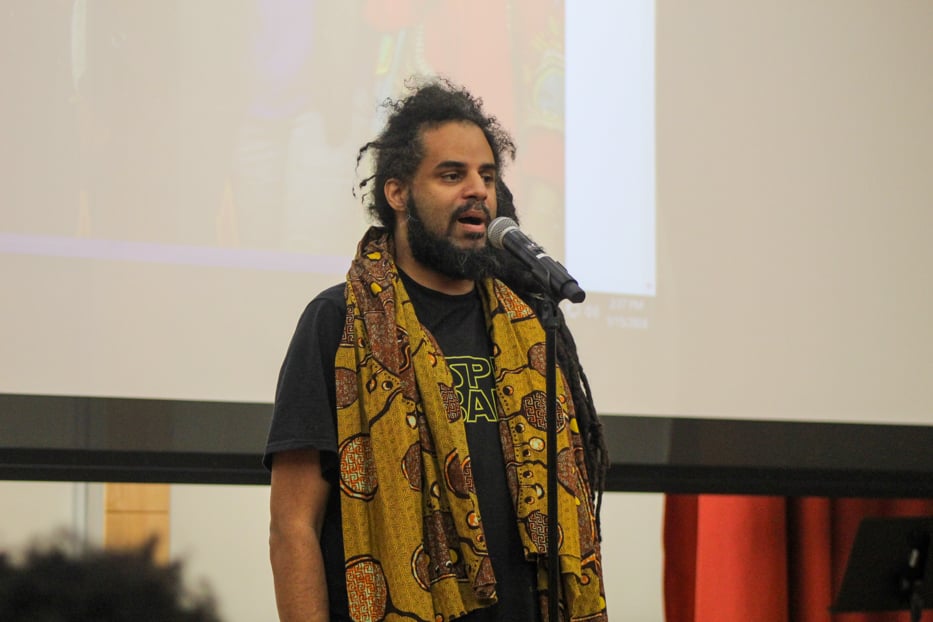 Victor Rodgers (aka Slangston Hughes). Photos Kapp Singer.
Victor Rodgers (aka Slangston Hughes). Photos Kapp Singer.
When the Z Experience Poetry Slam kicked off on Monday morning, defending champion Victor Rodgers was still in transit. What was supposed to have been a quick flight from Baltimore had stretched to four hours as departures were interrupted by ice and snow on the runway.
As Rodgers flew through the air, lining up for final approach at Tweed, the opening act of the day, an open mic, was well underway at the 28th Annual Dr. Martin Luther King Jr. Legacy of Social and Environmental Justice series of events, hosted by the Yale Peabody Museum in partnership with the Connecticut Department of Energy & Environmental Protection and the New Haven Museum.
In addition to a robust slam poetry program, which stretched throughout the day on Monday, there was also a family storytelling and dance event at the New Haven Museum on Sunday.
Just moments before the official competition began in earnest, Rodgers, who performs under the stage name Slangston Hughes, walked down the gently sloped steps of the Yale Science Building’s O.C. Marsh Hall. Not only had he made it in time to defend his champion status, but a couple hours later, he had won, for the second time in a row, with a $1,000 prize to boot.
“I don’t know, the slam gods were with me,” Rodgers said.
Across the slam’s three rounds—emceed by poet and multi-instrumentalist Ngoma Hill—Rodgers expertly declaimed poems which were as heartfelt as they were humorously deadpan.
“F— the ceiling, f— the white walls, f— 50 percent of soccer balls,” Rodgers recited, garnering laughs from the audience before going on to name dozens of other white objects over which he was casting a curse—a game, he explained later on in the poem, that he played with his daughter in the car at the end of a hard day.
“I always try to use humor in my poems—that’s part of my style because I talk a lot about heavy stuff,” Rodgers said in an interview afterwards. “I think I get my sense of humor from my mother. She has a really dark sense of humor and growing up she would laugh when it really wasn’t a moment to laugh—she would laugh as a coping mechanism, as a survival tactic, which is a big thing in Black culture.”
Rodger’s last poem, however, turned more serious, offering an extended third person reflection on how he is often hard on himself as a poet and internalizes criticism.
“It’s insane how hurtful the things are that we say to ourselves each and every day,” Rodgers recited. “These are just some of mine, but imagine if we did the exact opposite for just half of the time. If you possess that much darkness inside, what would happen if we turned on the power we hide?”
And at that moment, the mood of the poem shifted, and a wide smile came across Rodgers’ face.
“You’re so dope, your DNA ain’t got strands, it got bars,” he proclaimed to shouts and applause.
Both of Rodgers' final two poems earned a perfect score, and as the panel of five judges held up their bright yellow cards and Hill announced the tally to the audience, the crowd whooped with each successive “ten.”
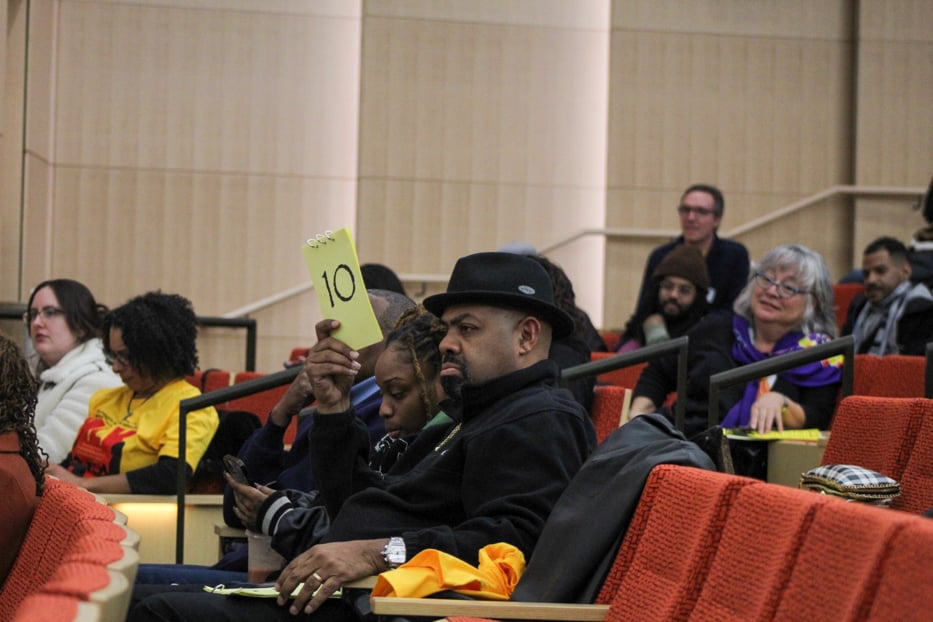 Judge Michael Jefferson awards a score of 10.
Judge Michael Jefferson awards a score of 10.
But Rodgers didn’t walk away with the win easily. The eight other poets who participated were formidable competitors, separated from the winner by only the smallest of margins. Their performances touched on themes ranging from the racial politics of naming to media bias to Afrofuturist imaginations for a better world.
“I’ve never won, but I love the sport,” said New Haven-based poet Yexandra “Yex” Diaz. “I really love seeing other creatives in their element and using a delivery and a style that is so different from mine.”
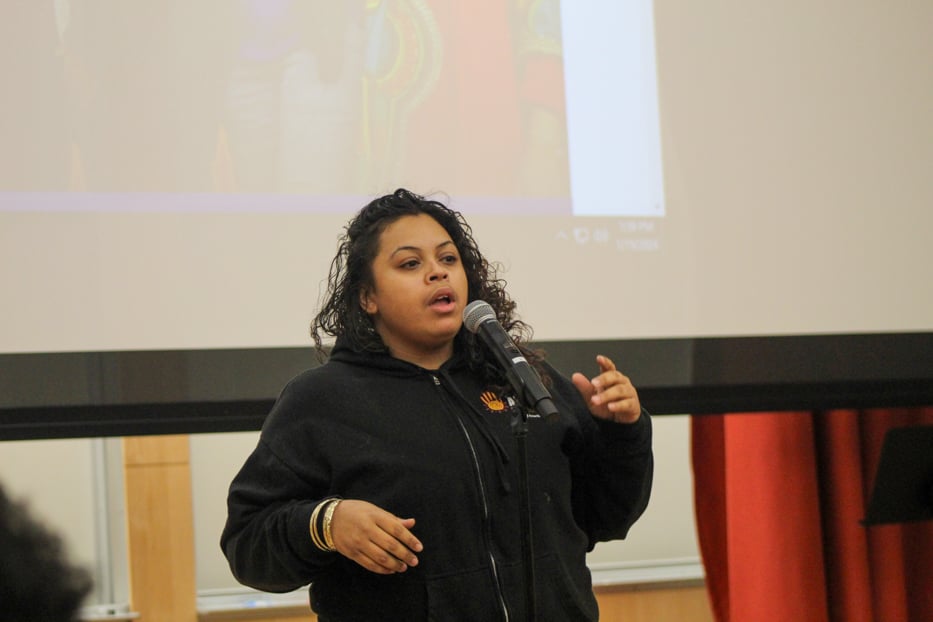 Yexandra Diz (aka Yex).
Yexandra Diz (aka Yex).
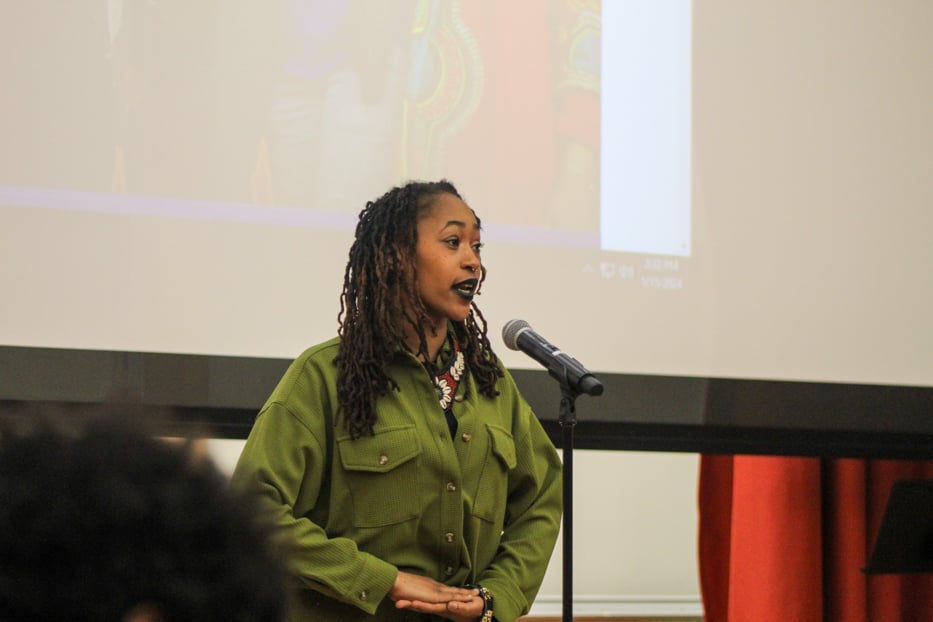 Goddess Tymani Rain.
Goddess Tymani Rain.
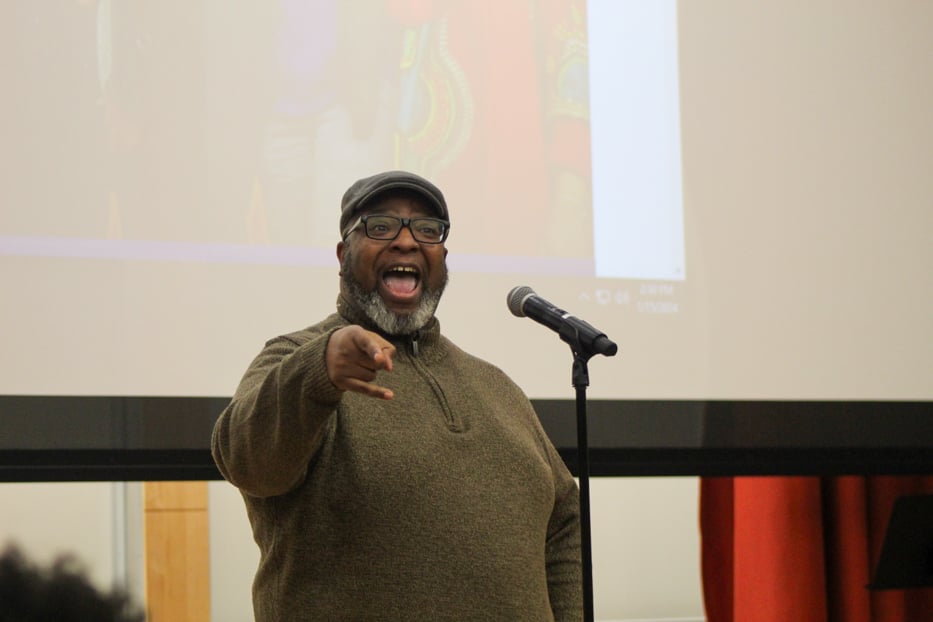 James Ellerbe.
James Ellerbe.
Bronx-based poet Imani Wallace, who performs as Lyrical Faith, placed second in the competition, and Goddess Tymani Rain took third. Both poets scored just tenths of a point behind Rodgers.
“A lot of my poems tend to be political in nature, and I wanted to perform poems that share those values especially on this day,” Wallace said. “I’m an educator, so all of my poems have a certain level of research that relates to education and activism.”
In her three poems, Wallace discussed lessons learned at the 2020 Black Lives Matter protests, the experience of code switching, and the practice of enslaved women chewing cotton as an early contraceptive.
“There’s always a huge turnout,” said Wallace, whose poems got standing ovations on multiple occasions. “I was so excited to see that the auditorium was basically full.”